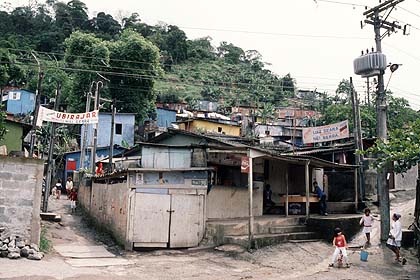Brazil: Impeachment scandal or coup?
Maryknoll Office for Global Concerns staff member, and returned Maryknoll Lay Missioner, Dave Kane, reports from João Pessoa, Brazil, on the political turmoil upsetting the country. The following article was published in the May-June 2016 issue of NewsNotes.
Brazil’s corruption-tainted lower house of Congress voted on April 17 to move forward with an impeachment process against President Dilma Rousseff. [UPDATED: On May 12, Brazil’s Senate voted in favor of an impeachment trial for President Dilma Rousseff.] While those in the movement to remove the president have named “fighting corruption” as the reason for the impeachment, there are factors that point to a political power struggle.
President Rousseff is very unpopular, with single–digit approval ratings, due to an economic crisis worsened by falling commodity prices, her poor management, and the fact that members of her political party are implicated in different corruption scandals. Rousseff has yet to be directly implicated in any of the scandals.
The charges brought against her are for different accounting tricks that many administrations (including the past four presidents and majority of governors) use to guarantee that social programs function and to cover up deficits.
This is why many call the impeachment process a coup – the selective use of an obscure law to remove a president popularly – elected less than two years ago. The politicians leading the impeachment are responding to more serious charges themselves. House leader Eduardo Cunha is currently responding in the Supreme Court for allegedly taking millions in bribes and laundering the money through an evangelical church. If Rousseff is impeached, Cunha would assume the vice presidency.
Current vice president Michel Temer also has his struggles with the law and popularity. Incredibly, he has even lower approval ratings than President Rousseff and has been implicated by a number of witnesses in the massive “Car Wash” investigation with allegations of corruption at the state-controlled oil company Petrobras, where it is alleged that executives accepted bribes in return for awarding contracts to construction firms and diverted the proceeds into political campaigns and pockets of some politicians. At the same time that Temur is facing these allegations, the Supreme Court has called on Congress to begin a process of impeachment against him as his signature authorized many of the controversial accounting tricks.
An overlooked aspect of this story is that, if not for the significant anti-corruption measures that her party implemented over the last 13 years, none of the scandals that have so damaged President Rousseff’s reputation would have come to light. The Workers Party is portrayed as the most corrupt party in history when in reality it has done more than any other party to limit corruption.
One of the lasting effects of Brazil’s colonial history is endemic corruption at all levels of government and in society in general. The Alvorada Institute explains, “In Brazil, for centuries, the government did not have the necessary political will to tackle the problem because to investigate and bring to light cases of corruption often causes political crises, increasing society’s perception that [corruption] is growing, even when what happens is just the opposite.” This is exactly what we are witnessing today.
One of the first acts by President Luis Inácio “Lula” da Silva, founding member of the Worker Party and president of Brazil from 2003–2011, was to create the General Controller of the Union, a cabinet-level institution whose exclusive role is to combat corruption and increase transparency. The CGU has carried out surprise audits of close to 50 percent of municipal governments as well as all major federal programs and spending for the 2014 World Cup and 2016 Olympics. More than 5,000 federal workers and politicians have been fired and/or imprisoned for corruption based on investigations of the CGU.
Even top leaders of the Workers Party have been tried, convicted and incarcerated. This never happened in the past, as parties in power used their influence to stop any investigations of their own party or allies. This change is due to another significant reform: granting autonomy to the federal police. The unencumbered federal police have imprisoned not only party leaders, but also corporate executives, something extremely rare in the past.
The dilemma confronting Brazil is how to combat widespread corruption. Autonomous investigators are finally scrutinizing a political system rife with corruption at all levels. Yet, when more than 60 percent of Congress is currently responding to charges ranging from corruption and electoral fraud to kidnapping and even murder, this has the potential for destabilizing the entire system. If successful in impeaching Rousseff, opposition forces could stop investigations. It remains to be seen if the anti-corruption reforms of recent years will survive.

